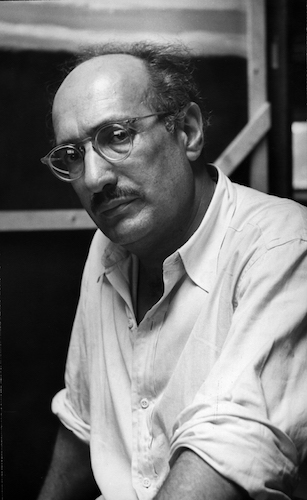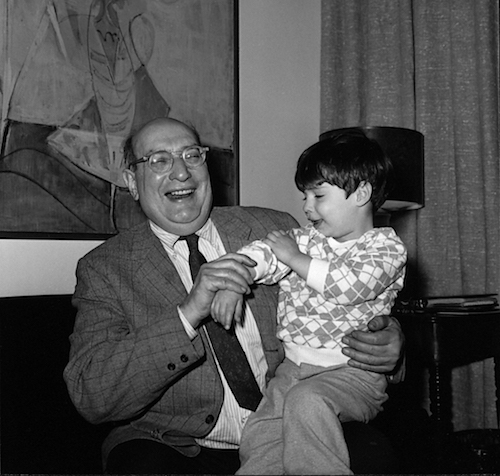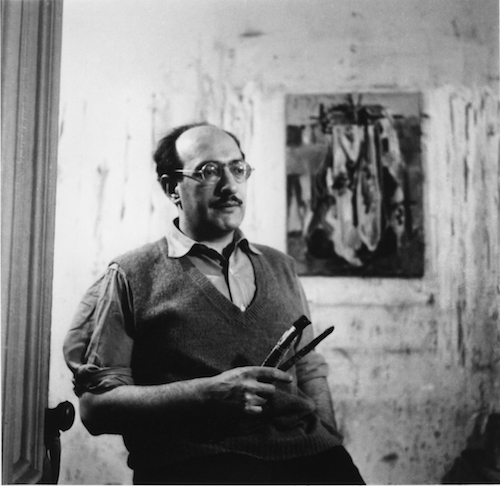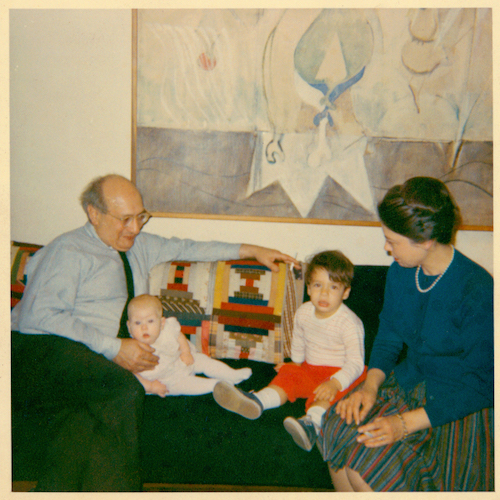Communiqué
“Rothko: Pictures Must Be Miraculous” on AMERICAN MASTERS | Friday, October 25 at 9
< < Back to rothko-pictures-must-be-miraculous-on-american-masters-friday-october-25-at-9American Masters — Rothko: Pictures Must Be Miraculous Tells the Story of the Leading 20th-century Artist Best Known for Color Field Paintings
Features original scenes with Alfred Molina in the role of Mark Rothko, written by Academy Award nominee John Logan
Premieres nationwide Friday, October 25 at 9 p.m. on WOUB, pbs.org/americanmasters and the PBS Video app

One of the most influential artists of the 20th century, Mark Rothko’s signature style helped define Abstract Expressionism, the movement that shifted the center of the art world from Paris to New York. American Masters — Rothko: Pictures Must Be Miraculous, premiering nationwide Friday, October 25 at 9 p.m. on PBS, pbs.org/americanmasters and the PBS Video app, is an intimate portrait of the celebrated painter whose luminous canvasses now set records at international auctions. Interviews with Rothko’s children, Kate and Christopher, as well as leading curators, art historians and conservators present a comprehensive look at the artist’s life and career, complemented by original scenes with Alfred Molina in the role of Rothko. Molina performs segments from Rothko’s writings, and the documentary features clips from the six-time Tony-winning play Red. Great Performances will premiere Red nationwide on Friday, November 15 at 9 p.m. on WOUB, pbs.org/gperf and the PBS Video app as part of the series’ third annual “Broadway’s Best” lineup of acclaimed theatrical productions.
Over a career spanning five decades, Rothko developed his signature style: large, abstract color fields with luminous rectangular forms that balance depth, shape and hue through the delicate layering of many thin washes of paint. While Rothko’s paintings show close attention to formal elements, he was concerned with the way the paintings could represent philosophical questions. In his words, he was “interested only in expressing basic human emotions — tragedy, ecstasy, doom.”

Born Marcus Rothkowitz in Dvinsk, Russia, on September 25, 1903, Rothko emigrated to Portland, Oregon, with his family at age 10. He was accepted to Yale on a full scholarship but attended for only two years before moving to New York and enrolling in the Arts Students League. In 1929, Rothko became a teacher at the Center Academy of the Brooklyn Jewish Center, a post he held for over 20 years. In the 1930s, he was employed by the Works Progress Administration, where he created haunting scenes of New York subway riders. As he continued to experiment with his artistic voice, his work became heavily reliant on symbolism and mythological imagery, but by the end of the 40s Rothko developed his signature color field style.
American Masters — Rothko: Pictures Must Be Miraculous follows his rise in the artworld alongside Willem de Kooning, Helen Frankenthaler, Jackson Pollock, Joan Mitchell and others as Abstract Expressionism took the art world by storm. The documentary highlights one of Rothko’s most famous commissions, a series of murals for upscale restaurant The Four Seasons in the Seagram Building in New York City in the late 1950s. Rothko completed the notably dark canvasses, but after

dining at the restaurant rescinded the paintings because he found the location too commercial. Despite the failure of that commission, in 1964 Rothko accepted a commission from the de Menil family to create artwork for a new sanctuary, a project that became the Rothko Chapel in Houston, Texas. After the paintings were completed, Rothko took his own life on February 25, 1970. Though he did not live to see the completion of the Rothko Chapel with his paintings installed, the chapel is now celebrated as one of America’s sacred centers and listed on the National Register of Historic Places.
American Masters — Rothko: Pictures Must Be Miraculous is a production of Oregon Public Broadcasting in association with THIRTEEN’s American Masters for WNET. Michael Kantor and Jessica Martin are executive producers. Eric Slade is producer, writer and director. Margaret Andres is editor. Cinematography by Jason Longo, Tom Shrider, Michael Bendixen, Todd Sonflieth, and Dan Mohr. Music by Teese Gohl. Graphics by Laverne Heiman-Layton and Danika Sandoz. For Oregon Public Broadcasting: president & CEO Steven M. Bass, vice president of television production David Davis and senior vice president & chief content officer Morgan Holm. Michael Kantor is executive producer for American Masters.

Major support for American Masters — Rothko: Pictures Must Be Miraculous is provided by The Harold & Arlene Schnitzer CARE Foundation Endowed Fund for Excellence; National Endowment for the Arts. The Kinsman Foundation; Kay Kitagawa and Andy Johnson-Laird; John and Patricia Beckman Fund, The Wyss Foundation, The Jackson Foundation, The Roundhouse Foundation, Lee and Marcia Stevenson.
Major support for American Masters is provided by AARP. Additional support is provided by the Corporation for Public Broadcasting, Rosalind P. Walter, Seton J. Melvin, Cheryl and Philip Milstein Family, The Blanche & Irving Laurie Foundation, Judith and Burton Resnick. Vital Projects Fund, The Philip and Janice Levin Foundation, Ellen and James S. Marcus, The André and Elizabeth Kertész Foundation, and public television viewers.

